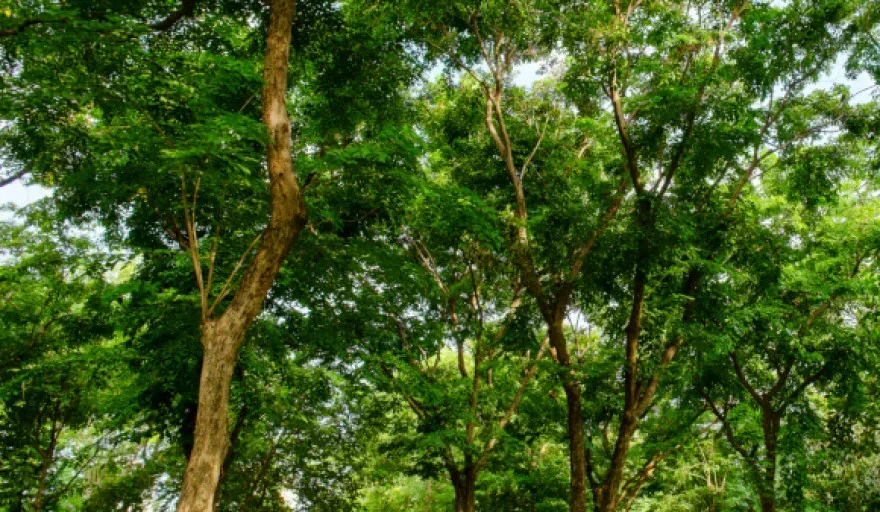Stepan Ruzicka, Director of Environment, and Karen Nash, Senior Environmental Consultant of Ramboll Environ, say the SoERA tool could have the answer to managing cost-effective methods for sustainable urban development.
With more than a quarter of the 100 fastest-growing cities in the world, Africa’s urban population is projected to have increased from 400 million to 1.2 billion by 2050. When cities grow rapidly, they are increasingly vulnerable to urban violence, natural disasters, climate change and poverty – often also leading to significant environmental and social degradation. The pressures on urban and infrastructure planning are therefore immense, and often coupled with administrative, technical and financial resource scarcity. Africa is now facing an urgent need for practical and cost-effective pathways to guide sustainable urban development for the continent.
FINDING A SOLUTION
In addressing this pressing issue Stepan Ruzicka, Director of Environment at Ramboll, has been working to develop the ‘State of the Environment Rapid Assessment’ (SoERA) tool. A planning and management tool designed for use across developing urban settings, it meets the challenge of obtaining a coherent and valid understanding of the priority urban environmental and social issues, in a cost-effective and practical way. This understanding is the key prerequisite for future policy and decision-making for safe, resilient and sustainable cities.
The SoERA tool has already been tested on a large scale case study, and was developed as part of management planning for a rapidly expanding city of five million inhabitants in the MENA region between July 2012 and January 2014. While significant investments of time and effort in data collection had previously been made, the benefits in terms of positive urban development outcomes were unsatisfactory. To remedy this the SoERA focussed on collating and making sense of existing and new baseline information on the status, trends and interactions of the human and natural environment. The result was a comprehensive overview of the existing conditions and their dynamics, which then provided a clear and auditable basis for effective and efficient management planning.
THE SOERA APPROACH
The SoERA process takes an existing framework – State of the Environment Reporting – and adapts it into an integrated rapid assessment (12-24 months) and communication tool. A five step approach combines existing data, gap analysis and targeted baseline studies with expert and stakeholder knowledge, causal pathways and scorecard reporting. Importantly, by drawing on expert consensus and stakeholder knowledge, SoERA is effective even without a full set of environmental and social baseline data. The SoERA Report then feeds into both the strategic and project levels of infrastructure planning, and the wider aspects of decision-making for sustainable management of the human and natural urban environment.
APPLYING SOERA
The SoERA process sits comfortably within a single political cycle of many administrations and can be used effectively at national, regional or local level. It can transform uncoordinated sectoral data into a coherent and meaningful picture of both status and trends. As such it provides a robust and auditable platform for future policy and decision-making on a local or regional scale. The authorities also gain a communication support tool enabling them to engage with their communities on complex environmental and social issues with clarity and confidence.
Most importantly, SoERA can be adapted for use across a range of economic, political, social and environmental contexts; it is sensitive to a country’s own development trajectory and avoids the assumption that cities should all be progressing towards the example set by the predominant northern paradigm. Solutions developed in the context of abundant and accessible energy supplies often fail to translate to the developing country context and fail to deliver societal benefits or to improve urban sustainability. SoERA can be used to support local and national policy and strategic directions that incorporate long-term sustainability, and that have the potential to deliver better outcomes than the imported urban models have done so far.
SoERA provides a system-wide understanding of the urban environmental and social interrelationships, cutting through sectoral and administrative constraints to inform policy decisions and management actions. It stimulates improved environmental and social reporting, monitoring of environmental and social conditions, and coherent environmental and social management. Being collaborative and integrative, SoERA also has the potential to be an important catalyst for development in areas of education, legislative and institutional strengthening, capacity building, land use planning and the use of locally-appropriate solutions.
LOOKING TO THE FUTURE
SoERA was established with the aim of being flexible, transferable and adaptable to a variety of technical, economic and political conditions – all within the context of growing urbanisation across Africa. As well as establishing a baseline for informed urban investment decisions, it also provides support to policy-making, institutional development and capacity building, together with benefits to environmental and social awareness and education. Refinements to the data-gathering systems can be targeted to inform future decisions as part of the ongoing management and reporting cycle. Ultimately, SoERA provides the foundations for reliable, efficient and progressive environmental planning, and sustainable long-term management of urban systems.
By Stepan Ruzicka, Director of Environment, and Karen Nash, Senior Environmental Consultant, Ramboll Environ
The full SoERA report has been released in July and can be found at: http://acts-net.org/images/RNRE-Pubs/Issue_paper_0012015.pdf






























